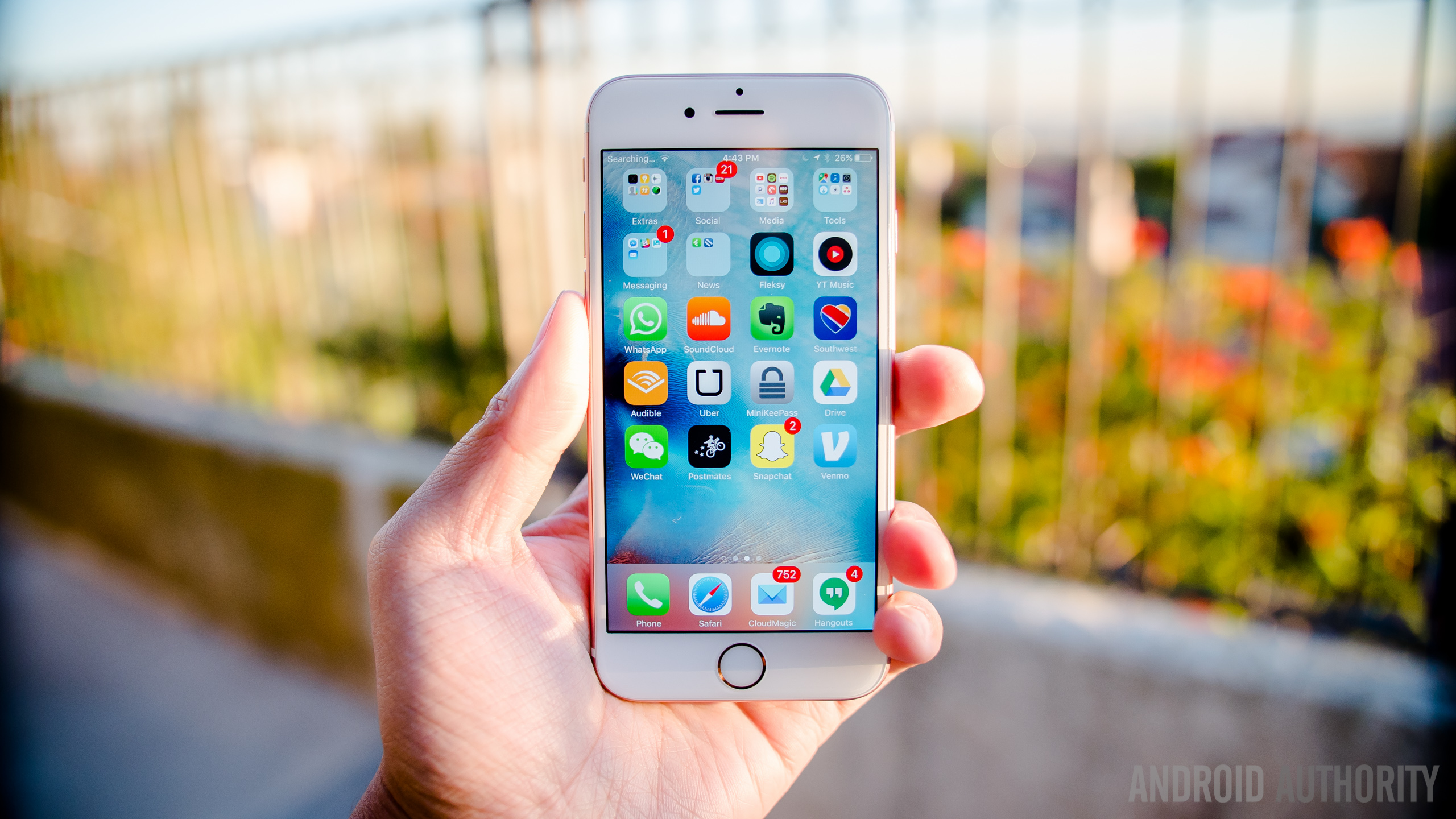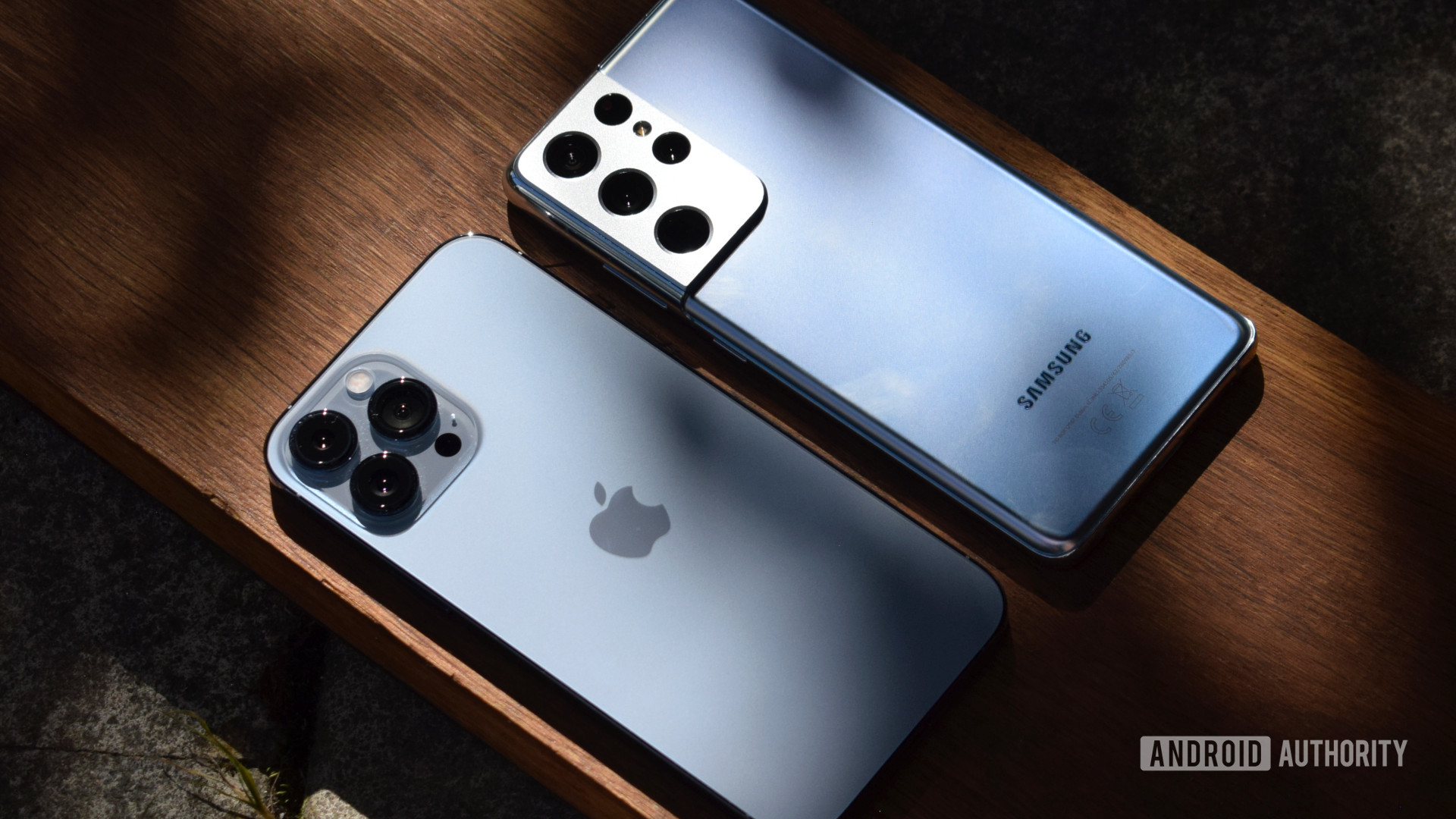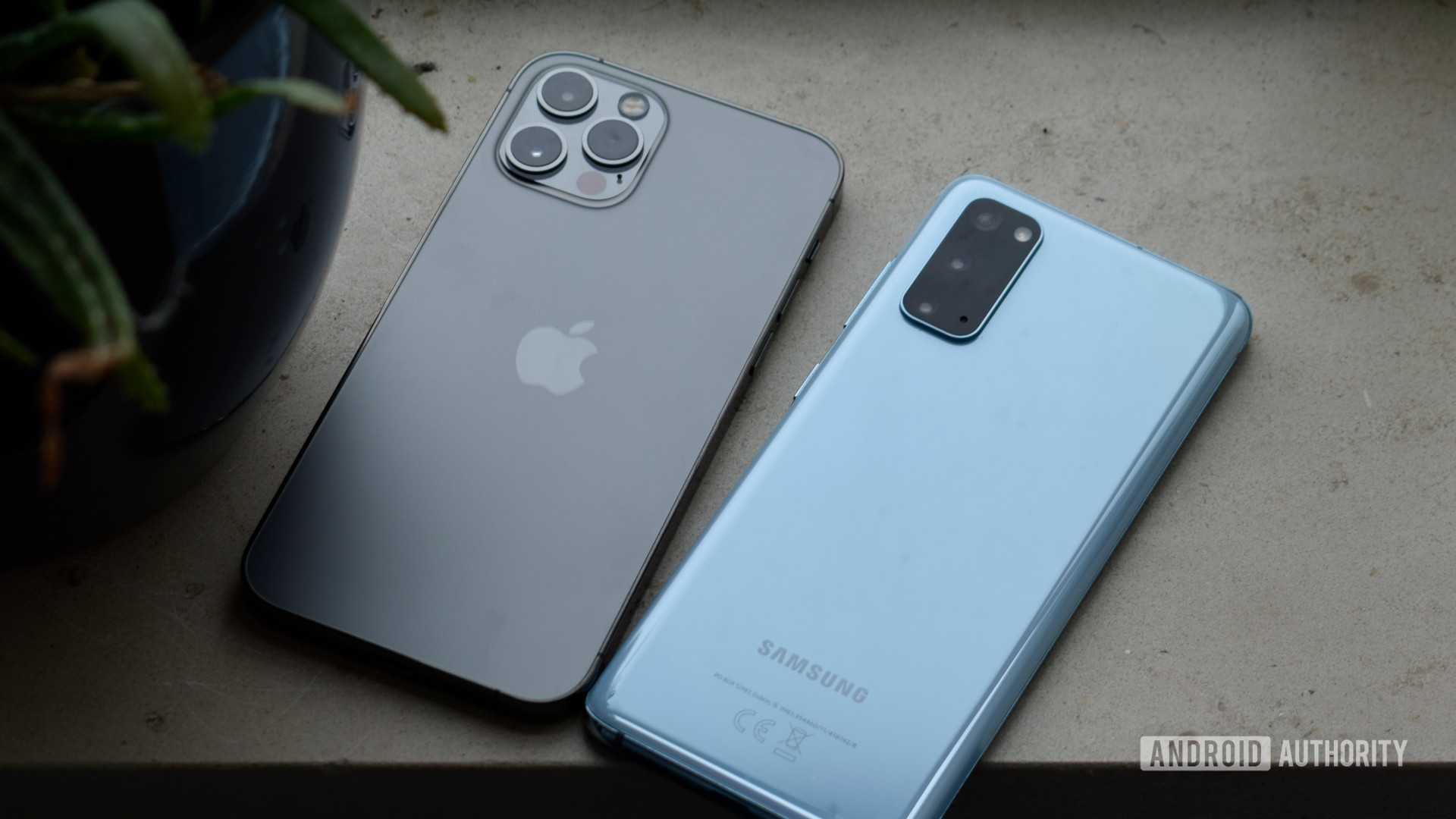How To Switch Numbers Between Iphones

As some of you may know, I took the month of December off, before jumping back into the fray at CES 2016. During my time off, while deciding which device to use as my daily driver, I thought about giving a phone that I haven't used for a prolonged period a chance.

Granted, we have used the latest iPhones in a series of in-depth comparisons against its Android competition, but never as my only daily driver, and so I now had the opportunity to see what the craze as such was all about by using this smartphone on the daily. Of course, this did this take a lot of my friends by surprise, as seen in the image above, but here's why I switched to the iPhone 6S….and switched right back again.
How to switch from iPhone to Android: Sync your contacts, photos, and more!
How To


At the start, it has to be admitted that the iPhone is a very well-designed phone, and that is driven home by the fact that quite a few Android OEMs design smartphones that are inspired by it, with some more obvious than others. Here, I had my hands on the new rose gold edition of the device however, and lets just say that this color iteration will likely not be universally popular, and really boils down to individual preferences, which holds true even when it comes to some Android devices out there.

In looking to protect the device, and in part hide the fact that I was using an iPhone, I decided to pick up a case, and found one from a rather surprising source, OnePlus. It really goes to show how robust Apple's third-party accessory ecosystem is, considering that OnePlus, an Android device manufacturer, also has available a protective case for the iPhone, even if OnePlus did seem to be taking a shot at the device with the tag "Get a grip" on the inside of the case.

As far as the different features go, I did initially under-rate the silence toggle found on the left side of the phone, since I keep my phones on silent the majority of the time because of using a smartwatch. The silence toggle does prove to be useful however, given that it muted pretty much everything on the phone, and is far more simple to use compared to the somewhat confusing software implementation seen with most Android devices, that can take some getting used to.
How to transfer contacts from Android to iPhone
How To


3D Touch is of course, the big new feature that was introduced with the latest iPhone, and while this feature does have potential, and is a quick and easy way to get to shortcuts of different applications, it's not something that I ended up using all that often. Ultimately, if it wasn't a feature available with the phone, it's not something that I would have noticed.

The biggest issue I had by far with the iPhone 6S was battery life, resulting in my becoming "that guy", you know, the one that is frantically searching and asking around for an iPhone charger. More commonly, I became the person with the phone that was almost dead at the end of the day. That said, the standby time of the device is actually pretty impressive, and if there was enough of a charge, I could leave the phone just sitting there, and not have much of a problem when I came back to it.

For the longest time, the iPhone camera was touted as the best in the business, but with Android doing a great job in this regard in 2015, this time around, I found the camera of the iPhone 6S to offer a mostly standard experience. I actually didn't find too much that was a whole lot better or worse when compared to plenty of other good Android cameras out there. When the iPhone 6S camera is doing well, it really does do a wonderful job, with pictures offering a lot of detail, and with the right depth of color to them.
However, the camera does suffer in lower light conditions, as expected, and as such, you won't find the iPhone camera to be particularly superior to any good Android cameras. The Auto mode of the iPhone does work well, but a manual mode would certainly have been appreciated, to have more control to cater the shot to exactly how I wanted it.

Moving on to the fingerprint scanner, it has to be admitted that the fingerprint readers found on the iPhone 6S and 6S Plus happen to be some of the best that are out there. They rival that of the Nexus 6P, and I would put both fingerprint reader implementations at par. No matter how quickly you remove your finger from the home button, it's always going to jump right into the interface, and is something that proves to be extremely reliable.

You might not be surprised to know that I didn't have that many problems using the iPhone as my daily driver, but the main reason for that is the fact that I actually enjoy cross-platforming. I make sure that a lot of the applications that I use can be used on both Android and iOS, such as Cloud Magic. It has to mentioned here that Google Maps is vastly better than Apple Maps though, with the former being a lot more accurate, and is also easier to use for navigation, even if that may be because I'm already so used to it.

After the one month trial, I arrived at a big realization when getting the Nexus 6P back in my hands, and that is the fact that customization takes on two different premises as far as these two competing ecosystems are concerned. On one hand is the iPhone, with its user interface the unchanged sea of icons across multiple homescreens, and while ease of use is undeniably a big plus here, it did feel like a somewhat sterile experience.
Meanwhile on Android, you can cater exactly where you want the apps to be or rely on the app drawer, so there is always something extra that you will be doing to make the experience more personal. That customization extends to everything from the wallpapers, lockscreen, and even what launcher is being used, and the ability to make it your own is what makes Android stand out.

Basically, with Android, customization comes from within, but in the case of the iPhone, it is seen only externally. With a variety of cases, covers, and third-party accessories available for the iPhone, the personalization comes from you would like your device to look from the outside, while the inside remains a kind of ubiquitous experience. Of course, that was what iOS was intended to do, and Apple certainly did achieve that.
All said and done, having the actual customization, and having my phone be literally mine from the inside and out is what makes me gravitate to Android. Of course, that is a position that a lot of people have taken, but that is something I started to appreciate even more, while using the iPhone 6S during the month of December as my daily driver. Ultimately, once I made my return to Android after a month break, I haven't looked back.
[related_videos title="iPhone 6S/6S Plus Videos" align="center" type="custom" videos="657282,654055,649187,647458,634297″]
How To Switch Numbers Between Iphones
Source: https://www.androidauthority.com/why-i-switched-to-the-iphone-670100/
Posted by: spauldingablemplaid.blogspot.com

0 Response to "How To Switch Numbers Between Iphones"
Post a Comment